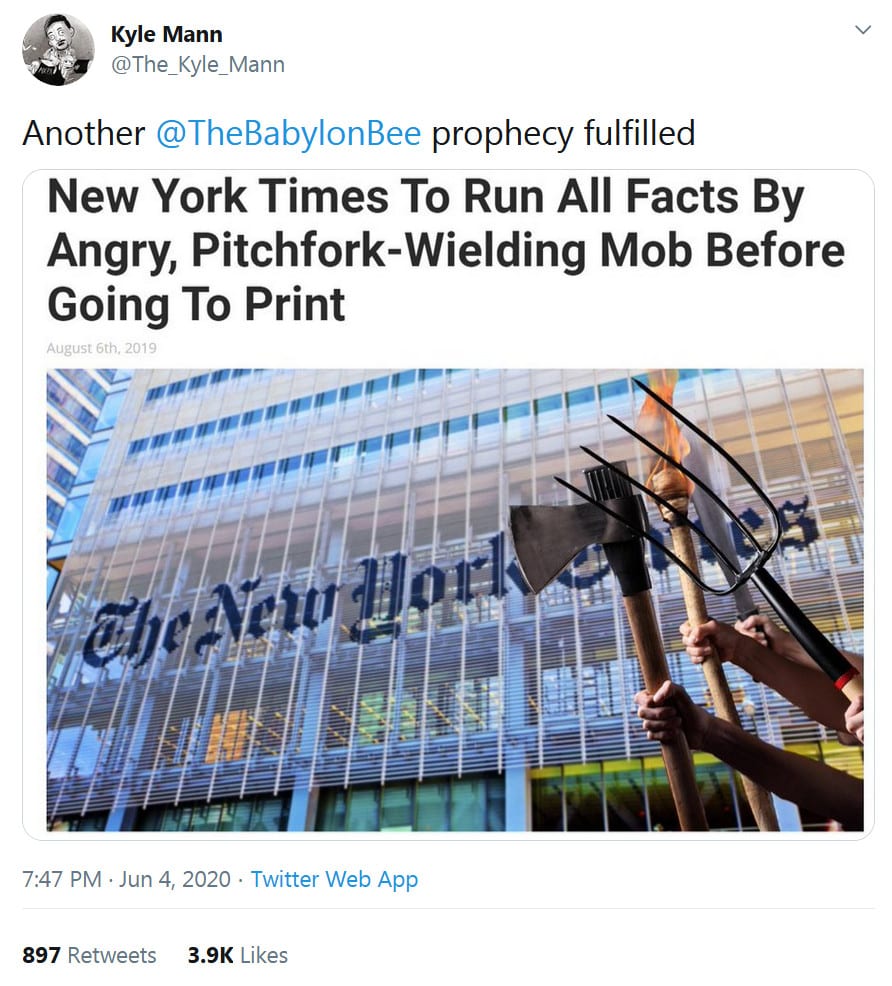Remember the heady days of 2020? Progressives trained by the richest universities in the land suddenly had the chance to remake America in their image, the way they had always dreamed of doing. The result was so obvious and crushing a failure that one is no longer supposed to talk about it.
Four years later, the power elite have discovered that their cosplay revolution is seen as merely ridiculous. Minority groups don’t want the new names that have been issued to them. Straight people prefer not to be called cisgender, and gay people don’t like being submerged in a tide of heterosexuals who style themselves queer. Even The New York Times, that high conclave of official euphemisms, has begun to soft-pedal chilling locutions like “gender-affirming care for minors,” instead referring honestly to puberty blockers and body-altering surgery.
Nellie Bowles’ Morning After the Revolution is a grand tour through the craziness that followed the killing of George Floyd and continues to this day, despite the majority of Americans shaking their heads in bewilderment. Bowles, a former Times reporter, started out as a progressive seeker, curious and hopeful about the new thinking, and she is still seeking solutions to racism, income inequality, and attacks on women’s rights. But she also sees the absurdity of much of what passed for progressivism, yet was actually narcissistic, neo-racialist, and aggressively inhumane.
At the Times, Bowles was hounded by an anti-disinformation editor, who was there to remind writers that the lab leak hypothesis was a conspiracy theory and also that conservatives were very bad people. The real danger was Trump, she was told, and anything questionable that the left did had to be passed over in silence, lest the enemy gain succor. When she said she wanted to go to Seattle to check out the new anarchist collective that had abolished the police, she was asked, she says, “Why do you care? No, but seriously why do you care?”
No enemies to the left, a Soviet motto that former Timesman Walter Duranty would have approved. Or as Bowles tells Salena Zito:
Washington Examiner: I don’t think acts of courage are all Joan of Arc moments. I think acts of courage are often subtle. They’re done without making a statement that you are brave because you did this. Can you talk about where that part of you came from in writing this book and in general your decision to be noncompliant with the [progressive] movement?
Bowles: There were a lot of the things that are asked of me for a long time and I want to please people for a long time. I want to stay in the good of the movement for a long time, and I manage it for a while, but eventually the movement becomes too demanding for me to accommodate and it wants too much. First, it was blunting my reporting. It was saying you can’t report on the most interesting stories of the day, which was really frustrating and crazy-making a little bit because it was like, “What do you mean we’re not supposed to cover the riots? What do you mean we’re not supposed to talk about” … you name it, hot-button issue of the day. And basically there was a media blackout for a while.
I call it now time wandering, which is all of the most interesting issues. You’re allowed to talk about it in the world of all the Substacks, the conservative media covers it, and the liberal media waits about two or three years and then they’re allowed to touch it.
So COVID origins or medical treatments for gender dysphoric kids or any of the most interesting of the day. Anyways, part of me was being frustrated in that regard, but it was really just that I couldn’t go along. At no point did I do a courageous act. It was just that I stopped being able to go along with the movement’s demands as they got too much.
So another example, when I started dating Bar [Bari Weiss], and don’t write about this in the book, but a friend of mine from college reached out and said, “You can stay in the good of the movement and you can remain friends with me, but you need to publicly disavow Bar.”
I remember just being like, “What?”
And she said, “You need to make clear where you stand apart and how you’re not going along with her and you need to do it in public.” And I was like, “First of all, I’m not even doing it in private or in public.”
Just the idea that I was supposed to do some sort of public repentance for being slightly off message in my writing or being with someone who this bizarre new movement decided was on the bad was so crazy to me.
But not to the Gray Lady, which is desperate to not be flailed by its subscriber base on social media. Or as America’s Newspaper of Record reported in 2020, during the Tom Cotton-induced collective seizure of the Times’ young staffers:

Meanwhile, Nick Gillespie interviews Bowles, in both audio and video format for Reason magazine on “How the Lockdowns Drove Us Crazy.”
And finally, for my own take on her new book: Look Back in Anger: Nellie Bowles’ ‘Morning After The Revolution’ Documents the Insanity that was 2020.
